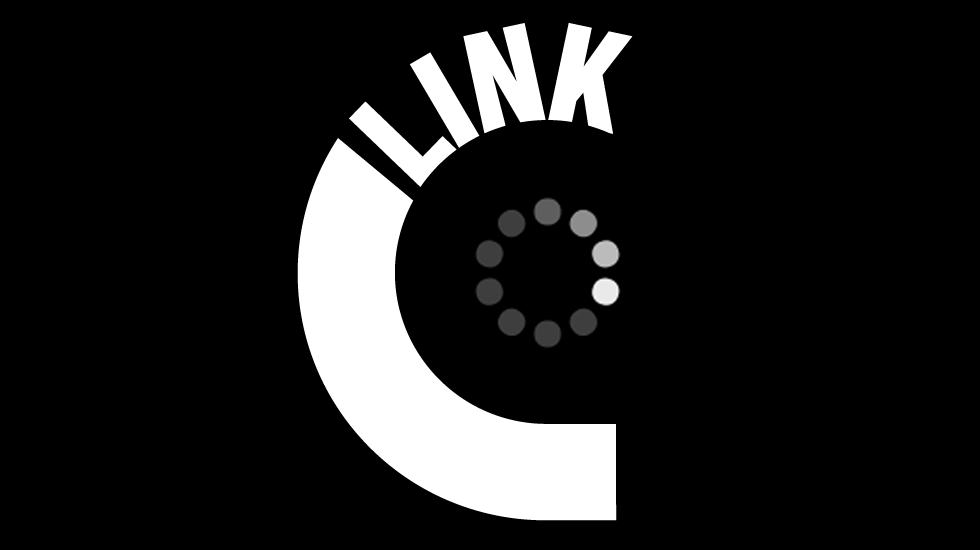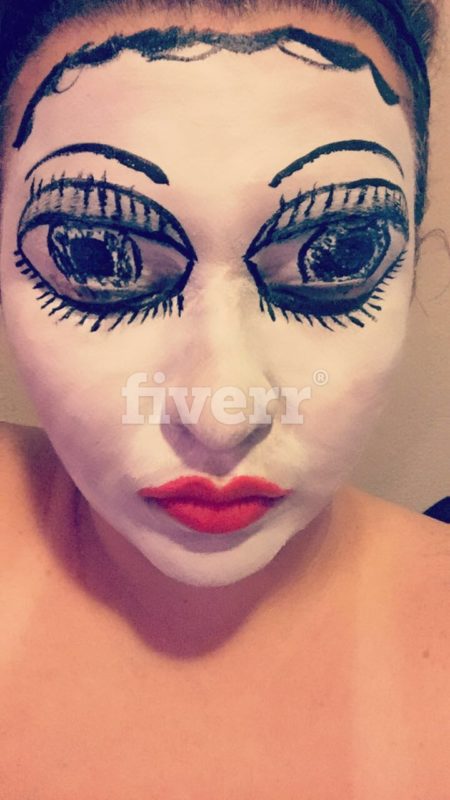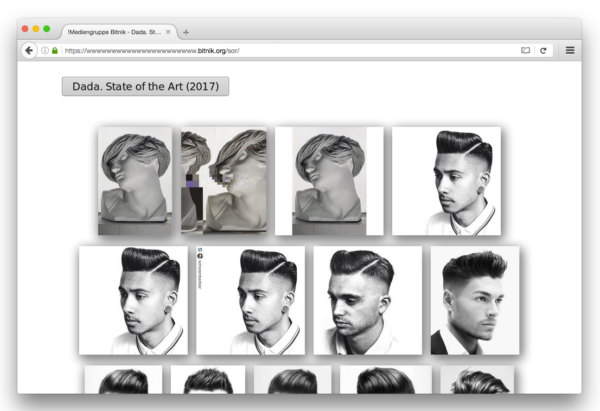
Celebrating the Dadaclub.online Anniversary with !Mediengruppe Bitnik and Eva & Franco Mattes!
Celebrating the Dadaclub.online Anniversary with !Mediengruppe Bitnik and Eva & Franco Mattes!
On February 5, 2016 the Link Art Center launched Dadaclub.online, an online archive and creative platform meant to celebrate the dada legacy in the centenary of dada’s birth, that took place in Zurich on February 5, 1916. For a year, Dadaclub.online has been a place for uninterrupted experimentation, promoting the creative reuse of digital copies of original dada artworks. On the platform, 148 artworks have been published so far, and visits amount to 248,672 so far.
Today, on February 5, 2017, Dadaclub.online will stop publishing new remixes. The website will keep offering, in public domain, high quality digital copies of a selection of dada artworks, that will still be available for use and abuse; but we will stop publishing works in the online gallery.
But this is not an end, our friends: on March 25, the Link Art Center will open an exhibition featuring all the artworks published on the website, alongside some dada originals kindly offered by Collezione Campiani. Also, a catalogue will be published by Link Editions, archiving all the project in paper form. So, see you in March at Spazio Contemporanea, Brescia, Italy.
To celebrate Dada’s 101st Jubilee, and Dadaclub.online’s first anniversary, we are publishing here two special features: Dada. State of the Reference (2017), by !Mediengruppe Bitnik, and Kiki Freelancers Worldwide (2017), by Eva and Franco Mattes.
In Dada. State of the Reference, !Mediengruppe Bitnik lets Google evaluate Man Ray’s The Poet by inputing the image into its similar images search. What does the machine see in this piece of art? What’s the state of art as it is determined by one of the most influential knowledge gate-keepers in the world? Man Ray’s The Poet is the input for a recursive images search. Unfortunately the image stream immediately leaves the realm of art. Moving directly to the latest mens hairstyles to Bruce Lee and Vietnamese celebrities, perfect smiles, women with headaches, smiling boys, plastic surgery, celebrities with blond hair, hairstyles for women. The recursive loop ends in its 1321st iteration with an image of a Nespresso machine.

In Kiki Freelancers Worldwide, Eva and Franco Mattes hired a freelance worker through an online marketplace to paint her face like Man Ray’s Masque Kiki. The Mattes, who have been exploring online economies and outsourced means of production in recent works such as BEFNOED (2013-), Image Search Result (2014-) and Dark Content (2015), here play on the sharp contrast between Kiki de Montparnasse, an icon of female independence and intellectual freedom, and the anonymous online worker. Or is participation in online cultures that is becoming uncannily similar to a form of exploitation?
!Mediengruppe Bitnik (read – the not mediengruppe bitnik) live and work in Berlln. They are contemporary artists working on and with the Internet. Their practice expands from the digital to affect physical spaces, often intentionally applying loss of control to challenge established structures and mechanisms.
Eva and Franco Mattes are an artist duo based in New York. Since the second half of the 1990s, they have explored the impact of technology and the web on society almost nonstop, exploiting the potential of narrative construction, identity theft, simulation and real-world intervention introduced by digital media.


